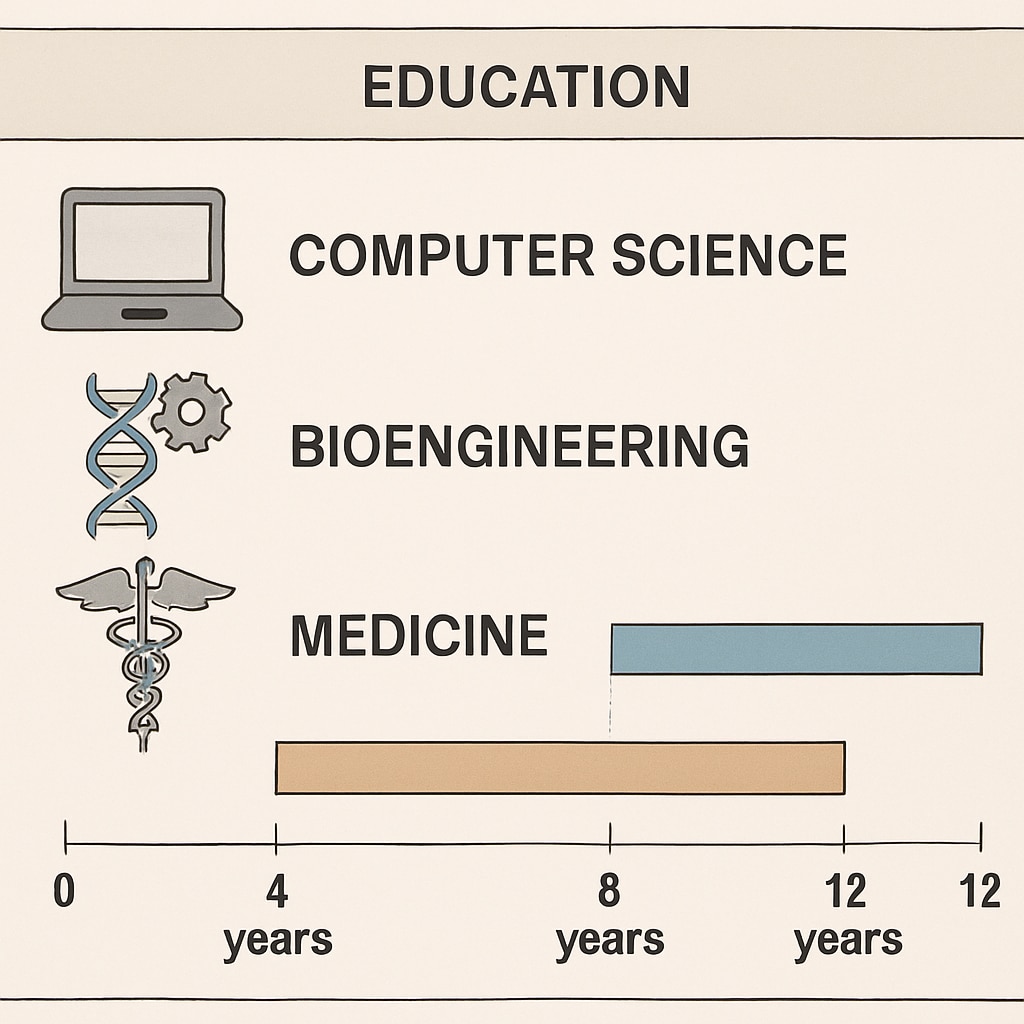For many students interested in STEM (Science, Technology, Engineering, and Mathematics), selecting a university major is one of the most critical decisions they will face. Fields like computer science, bioengineering, and medicine attract top talent with their potential for innovation and societal impact. However, this abundance of options can lead to confusion. In this article, we explore how STEM students can make an informed decision between these promising paths by analyzing personal interests, career prospects, and academic challenges.
Understanding Your Interests: Passion vs. Practicality
Before diving into career-specific details, it’s crucial to reflect on your interests and motivations. Are you drawn to problem-solving, fascinated by the human body, or motivated by the idea of creating life-changing technologies? Understanding your core passions can help narrow your choices.
- Computer Science: Suitable for those who enjoy logical thinking, coding, and working on innovative technological solutions.
- Bioengineering: Ideal for students intrigued by the intersection of biology and engineering, aiming to develop tools or processes to improve health and sustainability.
- Medicine: A perfect fit for individuals with a strong desire to help others directly, requiring dedication and compassion.
While passion is important, practicality also matters. Consider how your strengths align with the demands of each field. For example, computer science often requires strong analytical skills, while medicine calls for patience and resilience.

Career Prospects: What Does the Future Hold?
Understanding the long-term opportunities in each field is another vital step. STEM careers are generally well-regarded for their job stability and growth potential, but each path offers unique advantages:
- Computer Science: With the rise of AI, data science, and cybersecurity, this field is booming. According to the U.S. Bureau of Labor Statistics, computer science jobs have some of the highest projected growth rates, offering diverse roles in industries like finance, healthcare, and entertainment.
- Bioengineering: As technology advances, the demand for bioengineers is increasing, especially in medical devices, biotechnology, and environmental solutions. Salaries are competitive, and there’s room for innovation in cutting-edge fields like tissue engineering and synthetic biology.
- Medicine: While a career in medicine involves a lengthy educational pathway, the rewards are substantial. Physicians and surgeons are among the highest-paid professionals, and the field offers job security as healthcare remains an essential service globally (Encyclopedia Britannica).
Think about where you see yourself in 10–20 years. Would you prefer a fast-paced tech startup environment, a research lab, or a hospital setting? Your vision for the future can guide your decision.
Academic Challenges and Timeline: Are You Prepared?
The educational requirements for each STEM path vary significantly. Understanding these differences can help you assess your readiness and commitment:
- Computer Science: Typically requires a bachelor’s degree, which can be completed in four years. However, advanced roles may call for a master’s degree or specialized certifications.
- Bioengineering: A bachelor’s degree is standard, but graduate studies are often necessary for research or specialized positions. Laboratory work and interdisciplinary learning are central to this field.
- Medicine: This is the most demanding path, requiring a pre-med bachelor’s degree, medical school, residency, and potentially fellowships. The journey can take 10–15 years of rigorous study and training.
Consider both the time and financial investment required for each path. Are you ready for a decade of schooling, or do you prefer a quicker transition into the workforce?

Additionally, seek out opportunities to test your interest in each field. Internships, volunteering, and shadowing professionals can provide valuable insights into what a career in computer science, bioengineering, or medicine truly entails.
Making the Final Decision: Balancing Passion and Strategy
Ultimately, your decision should align with both your personal satisfaction and long-term goals. Here are some final tips to help:
- Speak with professionals in each field to gain first-hand perspectives.
- Research universities and their program strengths in your areas of interest.
- Evaluate job market trends and potential earnings to ensure financial stability.
- Reflect on your values—do you prioritize innovation, direct service to others, or interdisciplinary work?
Remember, there is no universally “correct” choice; the best path is the one that resonates with your ambitions and abilities. Whether you choose computer science, bioengineering, or medicine, your STEM career can make a meaningful impact on the world.
Readability guidance: Use concise paragraphs and clear transitions to maintain reader engagement. Incorporate lists to present comparisons effectively. Avoid passive voice and overly complex sentences to ensure clarity.


